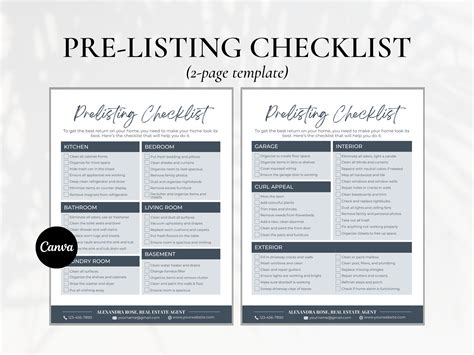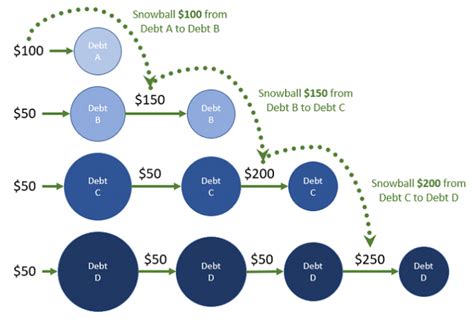
Home sellers are facing a harsh dose of reality as rising mortgage rates and cooling demand prompt buyers to push back on inflated asking prices, with one agent’s viral “Dear You, The Price Is Too High!” letter encapsulating the shift in the housing market. The increasing resistance underscores a significant change in negotiating power, forcing sellers to adjust expectations and consider price reductions to attract potential buyers.
The housing market, once characterized by bidding wars and soaring prices, is experiencing a notable correction, leaving many sellers grappling with the challenge of pricing their homes appropriately in a rapidly evolving landscape. Real estate professionals are now advising clients to adopt a more realistic approach to pricing, acknowledging that the days of automatically overpricing a property are over, at least for the foreseeable future. The viral letter, penned by an unnamed real estate agent, vividly illustrates the difficulties sellers face when their price expectations are not aligned with current market conditions. It emphasizes the necessity for sellers to reassess their strategies and to understand the dynamics influencing buyer behavior.
The letter, gaining traction across social media platforms, serves as a stark reminder that the market pendulum has swung. “Dear You, The Price Is Too High!” resonates with agents and prospective buyers witnessing properties linger on the market, failing to generate the interest they once would have commanded. It’s a blunt, yet necessary message to recalibrate seller expectations.
The shift is largely attributed to climbing mortgage rates, which have significantly impacted buyer affordability. As borrowing costs increase, the pool of qualified buyers shrinks, and those still in the market become more price-sensitive. This dynamic leads to fewer offers, longer listing times, and ultimately, pressure on sellers to lower their asking prices. The National Association of Realtors (NAR) has reported consistent increases in the median time a property remains on the market, signaling a slowdown in sales velocity.
Moreover, inventory levels are beginning to rise in many markets, providing buyers with more choices and further diminishing the sense of urgency that previously fueled bidding wars. The increased supply of homes gives buyers more leverage to negotiate and to be selective in their purchasing decisions. Sellers, therefore, must compete not only with other existing listings but also with the perception that prices may continue to decline.
Real estate agents are now playing a crucial role in educating sellers about the new market realities. This involves presenting data-driven analyses of comparable sales, market trends, and buyer sentiment. It also requires managing expectations and guiding sellers through the process of making informed decisions about pricing and marketing strategies. A key aspect of this process is emphasizing the importance of a realistic initial asking price, as overpricing a property can deter potential buyers and lead to a longer, more challenging sales process.
The letter’s virality also underscores a sense of frustration among real estate professionals who have been working diligently to navigate the changing market conditions. Agents are often caught in the middle, balancing the needs of their clients with the realities of the market. The “Dear You, The Price Is Too High!” sentiment encapsulates the challenge of convincing sellers to accept that the market has shifted and that pricing adjustments are necessary to achieve a successful sale.
The message is not just about lowering prices; it’s about understanding the current market dynamics and adapting accordingly. Sellers who are willing to be flexible and realistic are more likely to achieve their goals in a timely manner. This may involve not only reducing the asking price but also making necessary repairs or upgrades to enhance the property’s appeal. Staging, professional photography, and targeted marketing efforts can also play a significant role in attracting potential buyers.
In contrast, sellers who stubbornly cling to inflated prices risk alienating potential buyers and prolonging the sales process. A property that sits on the market for an extended period can become stigmatized, leading buyers to believe that there is something wrong with the property or that the seller is desperate. This can ultimately result in a lower sales price than what could have been achieved with a more realistic initial asking price.
The current market conditions require a strategic approach to pricing and marketing. Sellers need to be well-informed, realistic, and willing to adapt to the evolving dynamics of the housing market. The “Dear You, The Price Is Too High!” phenomenon serves as a potent reminder that the days of easy profits are over, and that success in today’s market requires a more nuanced and strategic approach.
The change in market dynamics also presents opportunities for buyers. With less competition and more inventory, buyers have more time to consider their options, negotiate favorable terms, and find properties that meet their needs and budget. However, it is important for buyers to remain realistic as well, as interest rates are still elevated compared to recent years, and the overall economic outlook remains uncertain.
The long-term implications of this market correction remain to be seen. While prices are likely to moderate in many areas, it is unlikely that we will see a repeat of the dramatic price declines experienced during the 2008 financial crisis. The housing market is supported by strong underlying fundamentals, including a shortage of housing supply in many areas and a growing population. However, the market is likely to remain more balanced and less frenzied than it has been in recent years, which is a welcome development for both buyers and sellers.
Ultimately, the “Dear You, The Price Is Too High!” phenomenon highlights the importance of adaptability and realism in the housing market. Sellers who are willing to adjust their expectations and pricing strategies are more likely to succeed in today’s challenging environment, while buyers have more opportunities to find properties that meet their needs and budget. The market is evolving, and those who are willing to adapt are most likely to thrive.
The viral letter and the widespread discussion it has generated underscore the need for clear communication and realistic expectations in the real estate industry. Agents need to be transparent with their clients about market conditions and provide them with the data and insights they need to make informed decisions. Sellers need to be open to feedback and willing to adjust their strategies as needed. And buyers need to be patient and diligent in their search for the right property.
The current market correction is a natural and necessary part of the real estate cycle. It is a reminder that prices cannot rise indefinitely and that the market is subject to the forces of supply and demand. While the transition may be challenging for some, it ultimately creates a more sustainable and balanced housing market for the long term.
Frequently Asked Questions (FAQ)
1. Why are home prices declining in some areas?
Home prices are declining in some areas due to a combination of factors, primarily driven by increased mortgage rates and a rise in housing inventory. As mortgage rates increase, the cost of borrowing becomes more expensive, reducing buyer affordability and demand. This, coupled with a growing supply of homes on the market, gives buyers more options and negotiating power, leading to price reductions. The previous period of historically low interest rates fueled rapid price appreciation, which was unsustainable in the long run. This correction is a natural market adjustment.
2. What is the significance of the “Dear You, The Price Is Too High!” letter going viral?
The viral letter signifies a widespread recognition of the shift in the housing market dynamics. It encapsulates the frustration and challenges faced by real estate agents in convincing sellers to lower their asking prices to align with current market conditions. The letter resonates with both agents and buyers who are witnessing properties linger on the market due to unrealistic pricing. It serves as a wake-up call for sellers to reassess their expectations and understand the impact of factors like rising interest rates and increased inventory on buyer behavior.
3. How do rising mortgage rates affect the housing market?
Rising mortgage rates have a significant impact on the housing market by increasing the cost of borrowing for potential homebuyers. This reduces their purchasing power and limits the number of qualified buyers, leading to a decrease in demand. As demand declines, sellers are forced to lower their prices to attract buyers, resulting in a slowdown in sales and price moderation or even declines in some areas. The affordability squeeze caused by higher rates is a major factor contributing to the current market correction.
4. What should home sellers do to successfully sell their properties in the current market?
Home sellers need to adopt a realistic and strategic approach to selling their properties in the current market. This includes:
- Pricing realistically: Conducting a thorough market analysis with the help of a real estate agent to determine a competitive and accurate asking price based on comparable sales and current market conditions.
- Preparing the property: Making necessary repairs and upgrades to enhance the property’s appeal and address any potential buyer concerns.
- Staging the home: Presenting the property in its best light through professional staging, which can help buyers visualize themselves living in the space.
- Marketing effectively: Utilizing high-quality photography, virtual tours, and targeted marketing strategies to reach a wider audience of potential buyers.
- Being flexible: Being willing to negotiate with buyers and consider reasonable offers to achieve a successful sale.
- Working with an experienced agent: Partnering with a knowledgeable and experienced real estate agent who can provide guidance, support, and expertise throughout the selling process.
5. What are the opportunities for homebuyers in the current market?
The current market presents several opportunities for homebuyers:
- Less Competition: Fewer bidding wars and less pressure to make quick decisions.
- More Inventory: A wider selection of properties to choose from.
- Negotiating Power: More leverage to negotiate prices and terms with sellers.
- Due Diligence: More time to conduct thorough inspections and appraisals.
- Contingencies: Greater ability to include contingencies in offers, such as financing or inspection contingencies, to protect their interests.
- Potential Price Reductions: Opportunity to find properties at lower prices compared to the peak of the market.
The market also allows buyers to take their time and find properties that truly align with their needs and budget.
6. What data should home sellers focus on when determining an asking price?
Home sellers should focus on the following data when determining an asking price:
- Comparable Sales (Comps): Recent sales prices of similar properties in the same area, ideally within the past 3-6 months.
- Days on Market (DOM): The average number of days properties are staying on the market in the area, indicating buyer demand and market speed.
- Inventory Levels: The number of active listings available in the area, which reflects the level of competition.
- Price Reductions: The percentage of properties that have undergone price reductions, signaling a need to adjust pricing strategies.
- Mortgage Rates: Current mortgage rates and their impact on buyer affordability.
- Local Market Trends: Overall trends in the local housing market, including factors like job growth, population changes, and economic conditions.
- Appraisal Data: Understanding what appraisers are likely to value the property at based on market conditions.
7. How can staging help sell a home in a slower market?
Staging can significantly enhance a home’s appeal and help it stand out in a slower market. By depersonalizing the space, arranging furniture to maximize flow, and adding tasteful décor, staging creates a more inviting and visually appealing environment for potential buyers. It helps them envision themselves living in the home and highlights its best features. In a competitive market, staging can be the difference between a quick sale and a property that lingers on the market. Staging showcases the possibilities of the space and helps buyers see its full potential.
8. How does the current market compare to the housing market crash of 2008?
While both the current market and the 2008 housing market crash involve corrections and price adjustments, there are significant differences. The 2008 crash was primarily driven by subprime mortgages, excessive lending practices, and a widespread financial crisis. Currently, the market is mainly influenced by rising interest rates and increased inventory. Lending standards are stricter now, and there isn’t a systemic crisis in the financial sector. While prices may moderate, a similar collapse is unlikely due to stronger underlying fundamentals and more responsible lending practices.
9. What role do real estate agents play in the current market conditions?
Real estate agents play a crucial role in navigating the current market conditions by:
- Providing Expert Advice: Offering guidance and expertise on pricing strategies, market trends, and negotiation tactics.
- Educating Clients: Helping sellers understand the current market dynamics and adjust their expectations accordingly.
- Marketing Properties: Effectively marketing properties to reach a wider audience of potential buyers.
- Negotiating Deals: Representing their clients’ best interests and negotiating favorable terms.
- Navigating Complexities: Guiding clients through the complexities of the buying or selling process.
- Providing Emotional Support: Offering support and reassurance during what can be a stressful and emotional time.
10. Is it a good time to buy or sell a home right now?
Whether it’s a good time to buy or sell a home depends on individual circumstances and financial goals.
- For Buyers: The current market presents opportunities for less competition, more inventory, and negotiating power. However, it’s important to consider interest rates and affordability.
- For Sellers: Sellers need to be realistic about pricing and willing to adapt to the changing market conditions. Working with an experienced agent and implementing a strategic approach is crucial.
Ultimately, the decision to buy or sell should be based on a careful assessment of personal needs, financial situation, and market conditions.
11. How long will the current housing market correction last?
The duration of the current housing market correction is uncertain and depends on various factors, including interest rate movements, economic conditions, and housing supply. It’s unlikely to be a short-term blip, and the market is expected to remain more balanced and less frenzied than it has been in recent years for the foreseeable future. A prolonged period of moderation is expected as the market adjusts to new realities.
12. What is the impact of rising inventory levels on the housing market?
Rising inventory levels in the housing market have several impacts:
- Increased Buyer Choice: Buyers have more options to choose from, reducing competition for individual properties.
- Negotiating Power Shift: Buyers gain more leverage to negotiate prices and terms with sellers.
- Price Moderation: Increased supply puts downward pressure on prices, leading to moderation or even declines in some areas.
- Longer Listing Times: Properties tend to stay on the market longer as buyers have more choices.
- Need for Effective Marketing: Sellers need to market their properties effectively to stand out from the competition.
13. What are some strategies for buyers to find the best deals in the current market?
Strategies for buyers to find the best deals in the current market include:
- Working with a Real Estate Agent: Leveraging the expertise of a knowledgeable agent to identify undervalued properties and negotiate effectively.
- Targeting Properties with Price Reductions: Focusing on properties that have already undergone price reductions, indicating motivated sellers.
- Considering Properties with Longer Days on Market: Exploring properties that have been on the market for a longer period, as sellers may be more willing to negotiate.
- Looking for Homes in Less Competitive Areas: Considering areas with lower demand and higher inventory levels.
- Getting Pre-Approved for a Mortgage: Demonstrating financial readiness to sellers and increasing negotiating power.
- Being Prepared to Act Quickly: Remaining vigilant and ready to make an offer when the right property is found.
14. How can sellers avoid overpricing their homes in the current market?
Sellers can avoid overpricing their homes by:
- Conducting a Realistic Market Analysis: Working with a real estate agent to perform a thorough market analysis based on recent comparable sales and current market conditions.
- Ignoring Zestimates and Online Estimates: Relying on professional assessments rather than automated online estimates, which can be inaccurate.
- Considering Buyer Feedback: Paying attention to feedback from showings and open houses and adjusting the price accordingly.
- Avoiding Emotional Attachment: Separating personal feelings from the objective value of the property.
- Pricing Below the Competition: Strategically pricing the home slightly below comparable listings to attract more attention.
- Being Open to Negotiation: Being willing to negotiate with buyers and consider reasonable offers.
15. What is the long-term outlook for the housing market?
The long-term outlook for the housing market is generally positive, although prices are expected to grow at a more moderate pace than in recent years. Strong underlying fundamentals, such as a shortage of housing supply and a growing population, are expected to support the market. However, factors like interest rates, economic conditions, and demographic trends will continue to influence market dynamics. The market is likely to remain more balanced and less volatile than it has been in recent years.









